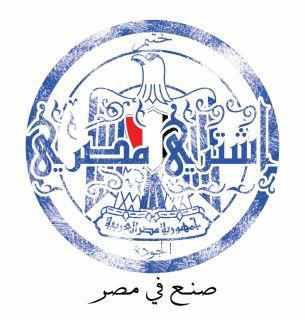
Egyptian talkshow host Amr Adib recently launched a global campaign encouraging Egyptians to buy their country’s products on Friday 16 December. The campaign was later adopted by a group of Facebook gurus who created a special page for the event.
The campaign has resonated among a privileged segment of Egyptian society. Facebook, Twitter and BlackBerry messages have been sent back and forth, and a considerable number of small businesses have capitalized on the idea. The Facebook page offers a Ministry of Commerce-authored list of Egyptian manufacturers and an array of Egyptian products, including cattle, dairy products and vegetables.
Some say the campaign is unrealistic. “You're likely to get more Egyptian products outside Egypt because the best is exported. The rest is left for the domestic market, and it’s usually too bad and too poor a quality to buy,” says Mohamed Rahmy, an Egyptian living in London. According to the young man, a campaign to improve tourism would have been more beneficial. He says that there are more “Buy Egyptian” posters on Facebook than there are Egyptian products in the markets.
Despite the critics, the event has attracted small posh boutiques, small one-man show enterprises, and big businesses, all keen to advertise under the informal slogan of “Al-Montag al-Masry, om al-Agnabi” (The Egyptian brand, mother of the foreigner).
“The only Egyptian products I know of are ancient pharaonic artifacts, and I don’t have the necessary cash for such purchases,” says Mahmoud al-Fouly, a young physician. Others have resorted to eating foul, tameya or koshary on the “festive” day as a way of contributing to the development of the Egyptian economy.
“I have issues with those 'let us do something for the day’ people. It just ends up making you feel that you did your good deed for society and now you can go on with your life!” says Yara Goubran, a young woman. According to Goubran, the initiative is good but the concept needs to be broadened. Egyptian products should be improved, and the initiative should support a habit of buying Egyptian-made goodies for a lifetime.
Egyptian designers such as Moodz Dzign are offering 10 percent discounts on their scarves and clothes. In addition to Al-Ahly official stores, Faragallah, Cottonil, Amer Group Restaurants, Domty Cheese, Regina Pasta, and el-Kahal Carpets are offering discounts of between 10 and 20 percent for one day.
Some have a more optimistic approach to the new idea. “Cotton and lenin bed sheets, Duvets, and woolen bed cover are mostly manufactured in Egypt and make good purchases,” says Hala Baraka, a wedding planner and mother of two. As a young entrepreneur herself, she pointed out youthful new products that are 100 percent Egyptian made, from clothes to jewelry and home accessories. She suggested brands like Azza Fahmy, Karma Jewelry, By Lisa Jewelry, AminaK, and Neon Designs.
“Private small enterprises might be a lateral answer to the problem we are facing. And maybe such a campaign will push us to discovering what is Egyptian in the market,” she adds.




